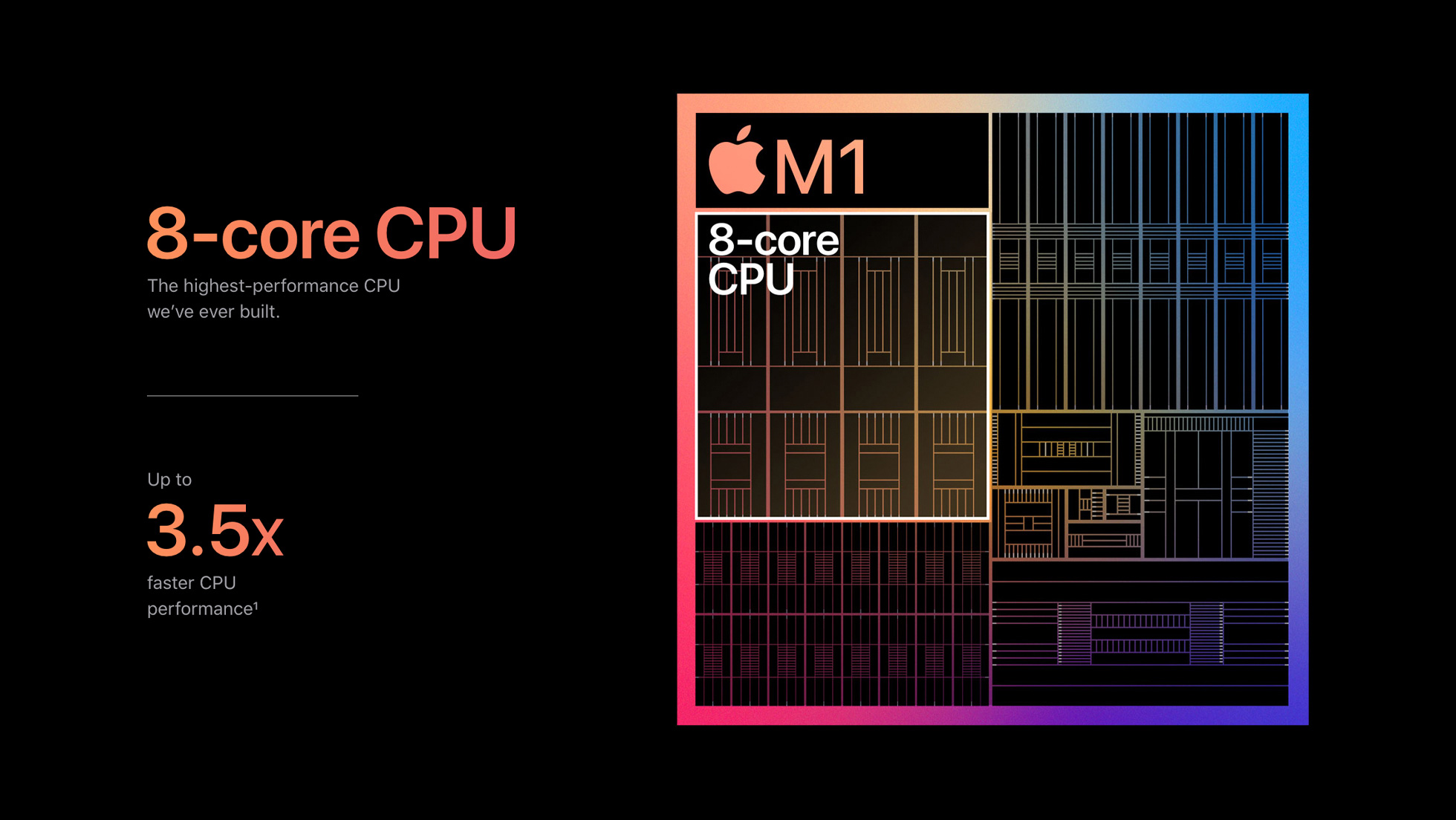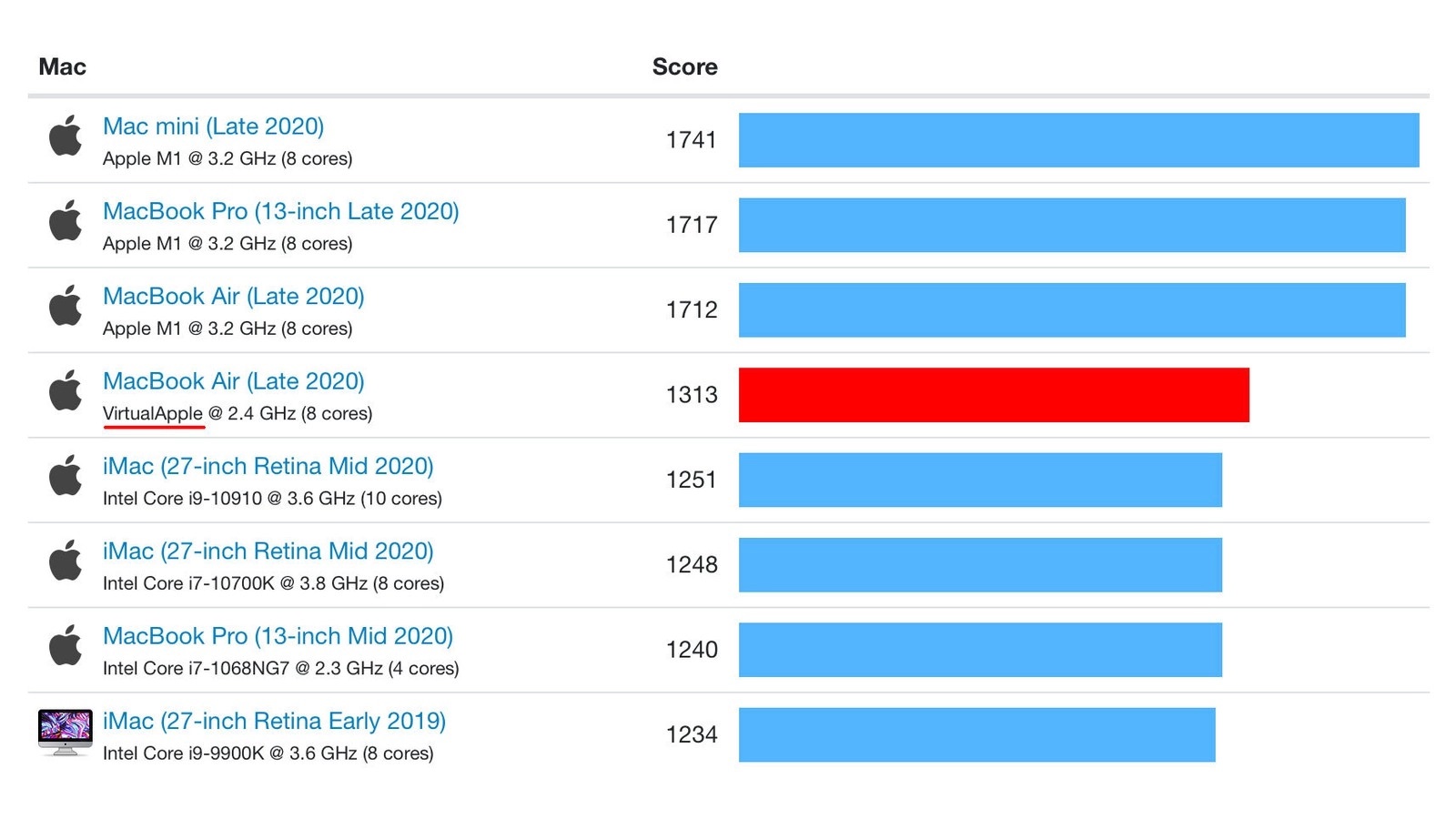What you need to know
- New Geekbench numbers show an M1-powered MacBook Air emulating x86 instructions faster than any other Mac can run them natively.
It's another bloodied nose for Intel.
The Apple silicon transition is now well and truly underway and with new machines set to begin arriving on the doorsteps of buyers this week, it won't be long before some real-world testing is done. We're relying on bootleg Geekbench scores until then and the early signs are pretty encouraging. Not least in terms of Rosetta 2 and the speed at which it can emulate x86.
New Geekbench scores spotted by MacRumors show that a new MacBook Air is capable of emulating x86 more quickly than any other Mac can run it natively. At least in terms of single-core performance.
Let that sink in for a minute.
The new Rosetta 2 Geekbench results uploaded show that the M1 chip running on a MacBook Air with 8GB of RAM has single-core and multi-core scores of 1,313 and 5,888 respectively. Since this version of Geekbench is running through Apple's translation layer Rosetta 2, an impact on performance is to be expected. Rosetta 2 running x86 code appears to be achieving 78%-79% of the performance of native Apple Silicon code.
Despite the impact on performance, the single-core Rosetta 2 score results still outperforms any other Intel Mac, including the 2020 27-inch iMac with Intel Core i9-10910 @ 3.6GHz.
That's a really positive sign for anyone who had been concerned that running x86 apps on an M1-powered Mac would be troublesome. After all, emulation should take a hit compared to running anything natively. Except when your own in-house chips are running rings around the competition, ti seems.
Tests show Apple's M1 emulates x86 faster than Intel can run it natively posted first on http://bestpricesmartphones.blogspot.com


No comments:
Post a Comment